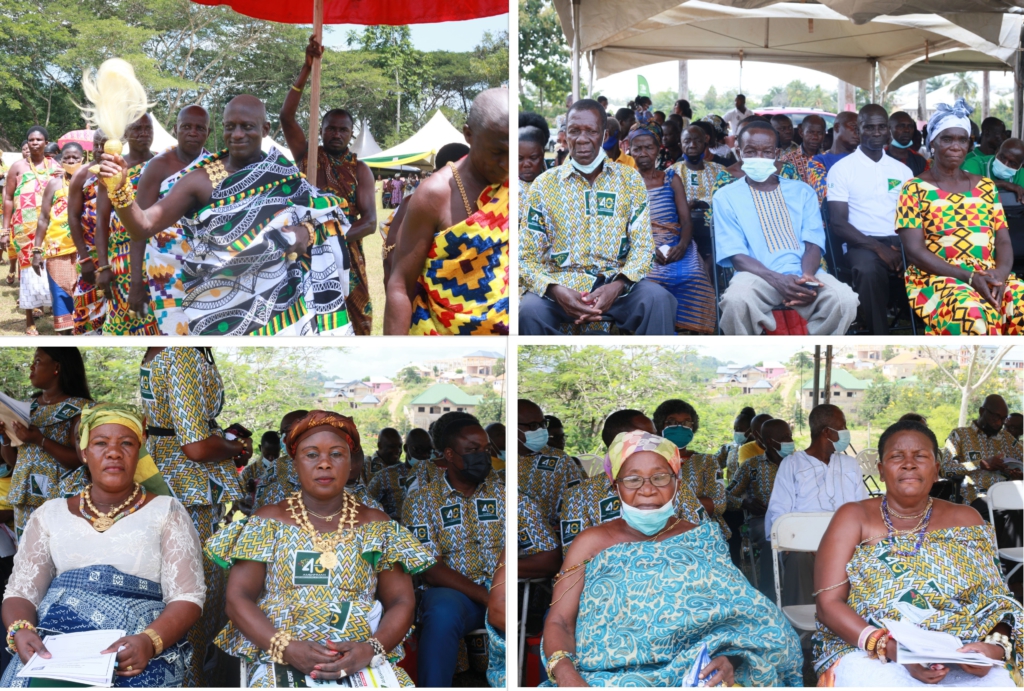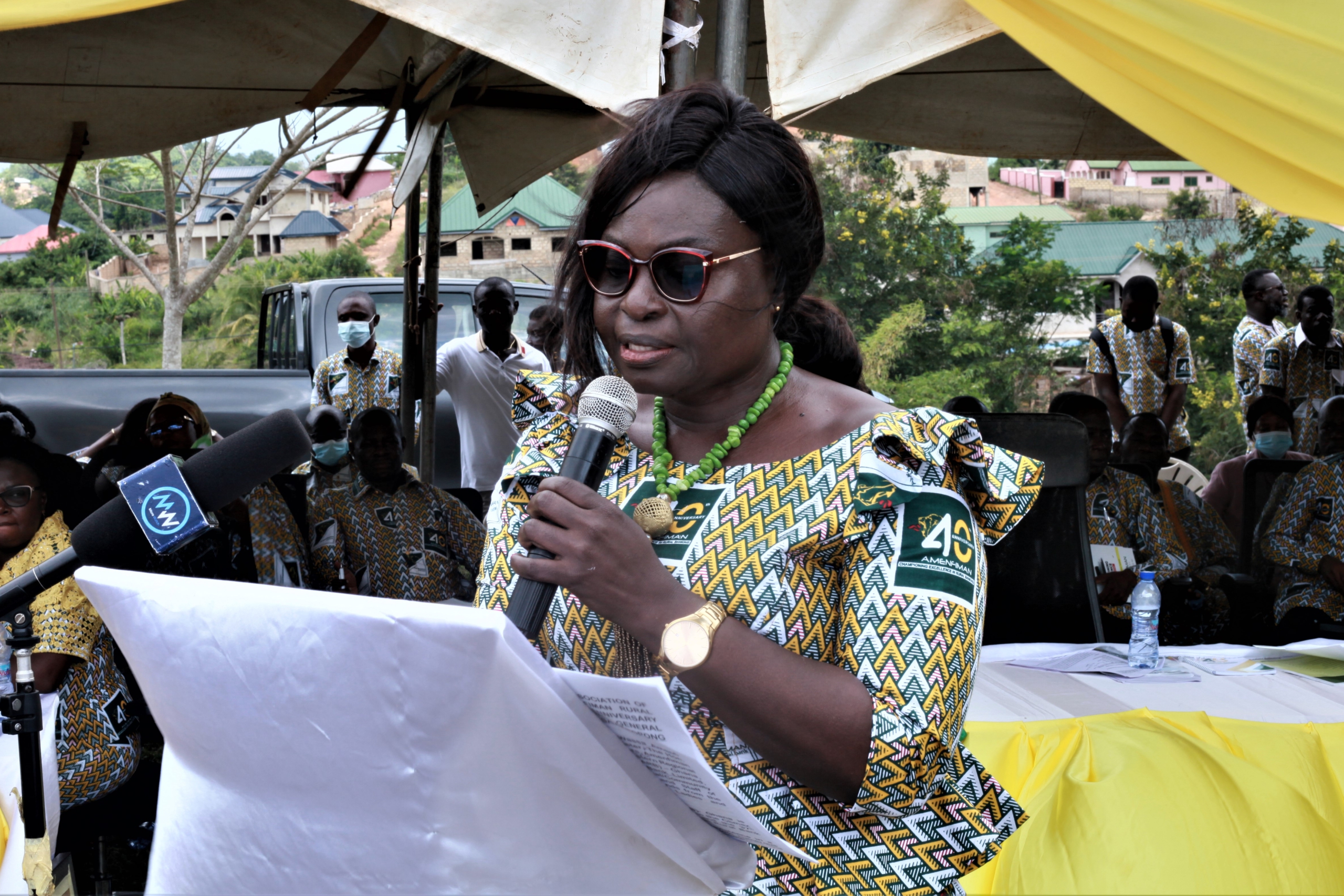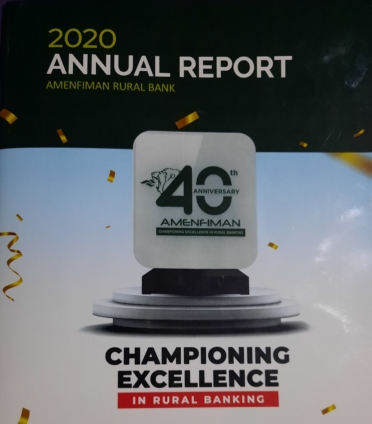Amenfiman Rural Bank has posted 165 per cent increase in profit after tax at the end of the 2020 financial year.
The increase from ¢4.3 million in 2019 to ¢11.5 million was recorded when the Covid-19 had heightened.
After deduction of corporate tax of ¢3,763,254, the growth in net profits stands at 77 per cent.
Officials say whiles the other banks saw risks during the period of the pandemic, management and board of Amenfiman saw an opportunity to support its clients.
The 2020 Annual Report also saw deposits increase by 42.8 percent during the period from ¢254,635,378 to ¢363,614,268.
In spite of the difficulties presented by the novel Covid-19 protocols, CEO of the bank, Dr Alexander Asmah, said the bank had to diversify its income sources.
He explained that they bank saw opportunities to help its customers’ uncertainties whiles other financial institutions saw risk during the pandemic.
“…that was the time people needed fund for consumption, whiles others needed money to reinvest in their business because of the way covid-19 had impacted their businesses. So whiles others saw the risk because if you lend to a business it could collapse and you might lose your money but we saw the opportunities”.

Board Chairman, Dr Tony Aubynn says as a business strategy, the bank is giving serious attention to MSMEs and farmers as a way in helping clients rebuild and grow their business whiles supporting recovery of the local economy in a post pandemic era.
“To remain resilient as we navigate through the difficult path of economic recovery post pandemic, risk management and prudence remain key in our decisions and actions as we endeavor to strike a good balance with customer service and opportunity for further growth.”
He revealed that the bank will continue to use technology, collaborations and partnerships to drive growth in the future.
“We have reached various levels of collaborations with other banks and fintech which provides powerful leverage to do more in its effort to go digital and online.”

Funding Agriculture Programs
Through the special farmers’ loan programme launched some 6 years ago, we are able to manage risk associated with agricultural finance and continue to take the bold initiative to provide the much-needed credits to support our agriculture sector
In the year under review, the bank disbursed 42million Ghana Cedis of loans to 10,000 farmers which is an increase from 30 million Ghana Cedis in 2019 financial year.
The beneficiary farmers are mostly smallholder cocoa farmers.
“With this milestone, we continue to remain the Bank of choice for our farmers. We wish to use this opportunity to encourage our farmers to continue to pay back these loans as they fall due so that the Bank will be in a position to provide more support in the future”.

CEO, Dr Asmah, said because the bank made a 95 percent recovery from the loan to farmers, they are encouraged to do more.
“It is true that banks and financial institutions hesitate to grant loans to farmers because it is a high-risk area. We have realized that we must empower them who are our core customers.”
He continued that, “We developed a new strategy to lend to farmers. So, we approach them in a group lending approach where we put a group of farmers in a community together give them same orientation to make them give themselves solidarity guarantee from each person.
…and because we recovered over 95 percent, we are encouraged to do more. We have a structured and tailor-made approach to make them comfortable.”

Special Focus on Funding Micro Small and Medium Enterprise
Because the local economies in the operational areas of the Bank revolves around MSMEs and farmers, management of the bank has set aside a special fund to increase the credit disbursement.
This means that customers in these sectors can access higher amounts of loans and advances at competitive terms and conditions to grow their businesses.
“…we intend to double the amount granted this year to see more businesses grow, provide employment and support the local economy recover from impact of COVID-19,” Dr Aubynn said.
Meanwhile, Executive Director of the Association of Rural Bank, Comfort Owusu, in the wake of the impact of the RCBs, entreated the public to patronize the industry.

Awards and Acknowlegdment
The bank meanwhile have partnered a local company to establish a commercial starch factory at Wassa Asikuma in the Western Region under the governments 1D1F with the potential to provide jobs to cover 100 people in the community.
The 37th annual general meeting coincided with the 40th anniversary celebrations of the existence of the bank.
Paramount Chief of Wassa Amenfi, Tetrete Okuamoa Sakyim, was excited by the achievements of the bank in the human and infrastructure development of the communities within the Amenfi area.
A good number of old and new staff of the bank who have distinguished themselves and contributed to its success for the past forty years were awarded and acknowledged.
Latest Stories
-
George Twum-Barimah-Adu pledges inclusive cabinet with Minority and Majority leaders
30 mins -
Labourer jailed 5 years for inflicting cutlass wounds on businessman
31 mins -
Parliament urged to fast-track passage of Road Traffic Amendment Bill
32 mins -
Mr Daniel Kofi Asante aka Electrician
32 mins -
Minerals Commission, Solidaridad unveils forum to tackle child labour in mining sector
37 mins -
Election 2024: Engagement with security services productive – NDC
39 mins -
Retain NPP for the good of Ghana – Rebecca Akufo-Addo
39 mins -
‘Let’s work together to improve sanitation, promote health outcome’ – Sector Minister urges
40 mins -
Ellembelle MP cuts sod for six-unit classroom block at Nkroful Agric SHS
43 mins -
‘I’ll beat the hell out of you if you misbehave on December 7’ – Achiase Commanding Officer
46 mins -
AFPNC leads the charge on World Prematurity Day 2024
51 mins -
Court remands unemployed man over theft of ECG property
58 mins -
Election security rests solely with the police – Central Regional Police Command
60 mins -
NCCE engages political youth activists at Kumbungu on tolerance
1 hour -
‘In Mahama’s era students lacked chalk, but are now receiving tablets’ – Bawumia
1 hour

